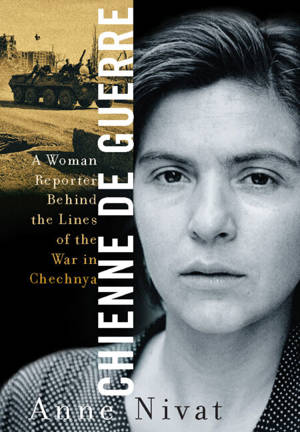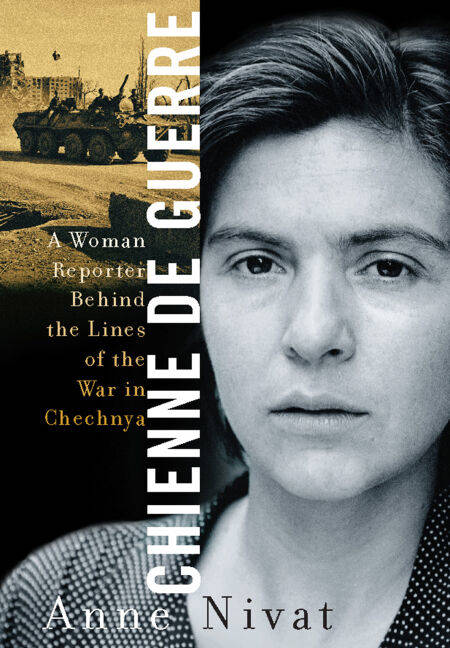
Je cadeautjes zeker op tijd in huis hebben voor de feestdagen? Kom langs in onze winkels en vind het perfecte geschenk!
- Afhalen na 1 uur in een winkel met voorraad
- Gratis thuislevering in België vanaf € 30
- Ruim aanbod met 7 miljoen producten
Je cadeautjes zeker op tijd in huis hebben voor de feestdagen? Kom langs in onze winkels en vind het perfecte geschenk!
- Afhalen na 1 uur in een winkel met voorraad
- Gratis thuislevering in België vanaf € 30
- Ruim aanbod met 7 miljoen producten
Zoeken
Chienne de Guerre E-BOOK
A Woman Reporter Behind the Lines of the War in Chechnya
Anne Nivat
E-book | Engels
€ 15,99
+ 15 punten
Uitvoering
Omschrijving
Two years ago, when she was thirty years old, Anne Nivat decided to see first-hand what war was all about. Russia had just launched its second brutal campaign against Chechnya. And though the Russians strictly forbade Westerners from covering the war, the aspiring French journalist decided she would go.
There are two very real dangers in Chechnya: being arrested by the Russians and being kidnapped by the Chechens. Nivat strapped her satellite phone to her belly, disguised herself in the garb of a Chechen peasant, and sneaked across the border. She found a young guide, Islam, to lead her illegally through the war zone. For six months they followed the war, travelling with underground rebels and sleeping with Chechen families or in abandoned buildings. Anne trembled through air raids; walked through abandoned killing fields; and helped in the halls of bloody hospitals. She interviewed rebel leaders, government officials, young widows, and angry fighters, and she reported everything back to France. Her reports in Lib'ration led to antiwar demonstrations outside the Russian embassy in Paris.
Anne's words move. They are not florid, but terse, cool, dramatic. More than just a war correspondent's report, Chienne de Guerre is a moving story of struggle and self-discovery -- the adventures of one young woman who repeatedly tests her own physical and psychological limits in the extremely dangerous and stressful environment of war.
There are two very real dangers in Chechnya: being arrested by the Russians and being kidnapped by the Chechens. Nivat strapped her satellite phone to her belly, disguised herself in the garb of a Chechen peasant, and sneaked across the border. She found a young guide, Islam, to lead her illegally through the war zone. For six months they followed the war, travelling with underground rebels and sleeping with Chechen families or in abandoned buildings. Anne trembled through air raids; walked through abandoned killing fields; and helped in the halls of bloody hospitals. She interviewed rebel leaders, government officials, young widows, and angry fighters, and she reported everything back to France. Her reports in Lib'ration led to antiwar demonstrations outside the Russian embassy in Paris.
Anne's words move. They are not florid, but terse, cool, dramatic. More than just a war correspondent's report, Chienne de Guerre is a moving story of struggle and self-discovery -- the adventures of one young woman who repeatedly tests her own physical and psychological limits in the extremely dangerous and stressful environment of war.
Specificaties
Betrokkenen
- Auteur(s):
- Uitgeverij:
Inhoud
- Aantal bladzijden:
- 288
- Taal:
- Engels
Eigenschappen
- Productcode (EAN):
- 9780786745579
- Verschijningsdatum:
- 22/02/2009
- Uitvoering:
- E-book
- Beveiligd met:
- Adobe DRM
- Formaat:
- ePub

Alleen bij Standaard Boekhandel
+ 15 punten op je klantenkaart van Standaard Boekhandel
Beoordelingen
We publiceren alleen reviews die voldoen aan de voorwaarden voor reviews. Bekijk onze voorwaarden voor reviews.









